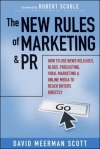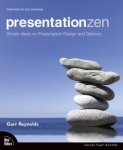I’m writing a four-part blog post on how to have a successful collegiate career for those interested in public relations. I’m basing this largely off my own experiences (a lot of what I’m including reflects what I wish I would have done during college, particularly in my early years) and those in my network. Please share and comment — with enough feedback, I may write another revised post.
You’re half-way done with your college career by now, but you’re hardly heading down the hill. As a junior, you should know a lot about public relations and what you want to do when you graduate. In a lot of ways, the jump from sophomore year to junior year is huge: you’ll be taking upper-level classes, you qualify for more scholarships and internships, and your younger colleagues will look up to you for help and advice. Here are my tips on how to have a successful junior year in college.
Maximize your PRSSA membership
I’ll ask this again… If you haven’t already joined PRSSA, what are you waiting for? Junior year is a great time to not only be an active member, but a leader and mentor to your peers. As a leader, you should have strong skills and be able to demonstrate how to be successful in PR. Here’s what I would do to maximize your PRSSA membership junior year:
- Take on leadership roles on the executive board and on committees. Build your relationships with peers and learn from them, too.
- Continue attending local, regional and national events. Attending National Conference, National Assembly and Regional Activities are great ways to learn more about the profession and network. If you have been to one of these events before, don’t think you won’t get anything out of attending another year. Also, make sure to network with your peers — someday, they will be your colleagues.
- Get published! One of the most practical membership benefits is that you can get your work published from the local to the national level. Consider writing for your Chapter’s newsletter (or even start one). You can also write for national publications and submit press releases to Chapter News.
- If you have the opportunity to work with members of PRSA, do it! If you can serve on a committee or help plan an event, it’s a great way to get to know some pros.
- Apply for national awards. Did you know PRSSA gives away around $20,000 in scholarships and awards? Check them out here.
Tip: Again, your membership will take you miles if you get active. What are you waiting for?
Choose your summer internship wisely
It’s really important to recognize the fact that this internship might be your last before you graduate. As such, if you do a good job, the chances of you getting a full time position with that company when you graduate significantly increase. Work hard, learn a lot and check out my tips on interning here. Also, getting a top-notch internship doesn’t mean you have to go to Chicago, LA or New York. You can get quality experience anywhere as long as you make it a quality experience.
Even so, you might find that you have a negative experience at the internship. Make sure that you make the most of the position and don’t burn your bridges with that company.
Tip: Choose a company that you can see yourself working for when you graduate. Prioritize what you value and look for companies that are similar.
A word on what you submit professionally
I’ve heard this too many times to ignore putting this in my post. When you submit your resume, cover letter or professional work samples, make sure it’s absolutely perfect. That means no spelling, grammar or AP errors. If a recruiter sees a single error on something you submit, chances are you’ll be out of the running for that position. The reality is that for one position in a PR jobs, there will probably be a ton of applications, especially at the agency level. Make sure your work is the best that it can be and that you and people in your network proofread it.
Another tip that has helped me is make all of your work follow AP Style. In your resume, make sure your states and dates follow the correct abbreviations, don’t write website anywhere (it’s Web site, according to AP) and follow the correct capitalization rules of titles. Again, have this proofread by as many people as possible.
Tip: If you haven’t already, get yourself an AP Stylebook and learn the rules. Some supplemental quizzes are here, here and here.
Get to know the industry
Truthfully, the best way to learn about new things going on in the public relations industry is to read about it. Knowing about account changes, new trends (especially in the digital sphere and best practices will help you learn the lingo and know what’s going on. I’ve included my recommendations as to what to read in order to learn more — I definitely recommend you check these sources out, both in print and online.
Tip: Subscribe to these publications/Web sites to better understand the world of public relations:
School is still important
I participated in a recruitment event for MSU a couple of years ago, and amid a conversation with a future Spartan, I realized something that is often forgotten when career advice is discussed. In my spiel, I talked about how many opportunities he will have to prepare himself for a successful career, but admittedly, I didn’t talk about classes. He then asked me, “so classes really aren’t that important, are they?”
Unfortunately, this is a bad attitude that a lot of over-achievers tend to spread. Sure, gaining internship experience, getting involved on campus and everything else is really important, but doing well in school is a given on the road to success. Even more discouraging is that GPA isn’t the most important thing to a public relations student. I think a better attitude is to treat college like a mini real world: there will always be things you don’t want to do, but that doesn’t necessarily mean they’re not important.
Tip: Challenge yourself in classes, and do a good job in them — it pays off.
Here’s what my Twitter network had to add:
@ckeppler Obvious, but they should take the opportunity to build their resume with internships and volunteering over the summer.
@LJZuber Make sure to go to networking events as well as run for leadership positions!
@kellee_m Get PR experience to build your resume in any way that you can, even if the job doesn’t pay
@AllisonLeAnn Create & perfect your resume, portfolio, blog/website & interview skills; Network, Network, Network!; Don’t procrastinate!
So, what do you think PR juniors should be doing to stay on track? Anything else to add?
Filed under: Internships, PR Book Club, Professional Development, PRSSA, AP style, career, career preparation, college, intern, Internships, junior, pr, Professional Development, PRSSA, Public Relations












Recent Comments